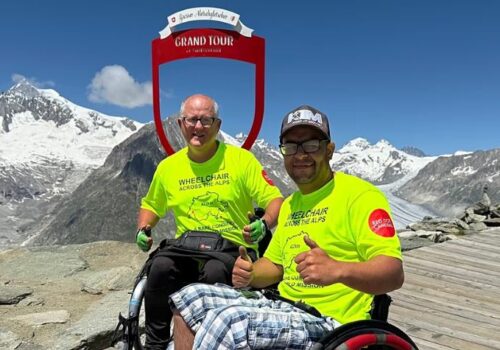- Home
- Our convictions-social
- Conviction #1
Conviction #1
Conviction #1
Sustainable mobility must combine freedom of movement and environmental responsibility
Mobility is a question of individual freedom: everyone has the right to move around. Whether willingly chosen or put up with, it plays a crucial role in accessing work, education, care services, and everyday essentials. The immobility forced upon us during the Covid-19 health crisis highlighted the fundamental need to get out and about. Mobility generates social bonding and opens up opportunities for discovering other cultures. It is even a factor for peace. Furthermore, it must be accessible to as many people as possible, under acceptable conditions in terms of services and cost.
Moreover, strong growth in global mobility is anticipated: air traffic is should virtually double by 2039(a) and the global automotive industry is set to reach 114 million in worldwide sales annually by 2024 – 20 million more than in 2017(b). According to these predictions, the lion’s share of these car sales will come from the Greater China region (China, Hong Kong and Taiwan), South Asia, and South America.
At the same time, the climate emergency is accelerating: in October 2018, the International Panel on Climate Change (IPCC) announced that we only have just ten years left to reverse the trend; in 2021, that the human-induced climate change was already impacting many extreme weather and climate phenomena in every region across the globe. Yet as it currently stands, the mobility of goods and people remains incompatible with global climate, environmental and health challenges. So this model needs to change… fast.
Transport is indeed responsible for a large proportion of greenhouse gas emissions: in 2019 it accounted for 24% of global emissions(c).
Let’s not forget the major implications for health, either: according to the World Health Organization (WHO), in 2016 outdoor air pollution caused the premature deaths of 4.2 million people worldwide(d). As for road accidents, they cause the annual deaths of more than 180 people per 1 million inhabitants(e).
To strike a balance between these imperatives – the right to mobility and the climate and health emergencies – we believe mobility stakeholders should focus on two areas. On the one hand, it is of course all about proposing mobility solutions that are fully sustainable: vehicles, mobility infrastructure and systems. On the other hand, users themselves must be made aware of the consequences of their mobility choices through the provision of indicators on the socio-environmental outcomes – carbon footprint, amount of energy used, repercussions on rare earth metals, social impacts when purchasing goods, etc. – in addition to those already available (travel times, journey rupture points). In short, a framework must be built that allows everyone to exercise their freedom of choice in a responsible manner.
Footnotes:
aInternational Air Transport Association (IATA) / 20-Year Air Passenger Forecast
https://www.iata.org/eng/publications/store/20-year-passenger-forecast
bPwC Autofacts / October 2018
https://www.consultancy.uk/news/13900/global-car-market-to-break-through-100-million-in-sales-by-2020
c International Energy Agency (IEA) / 2020
https://www.iea.org/reports/tracking-transport-2020
dWorld Health Organization (WHO) / June 2017
https://www.who.int/news-room/fact-sheets/detail/ambient-(outdoor)-air-quality-and-health
eEuropean Commission / 2021
https://ec.europa.eu/commission/presscorner/detail/en/ip_21_1767
KEY FIGURES
1.28
billion cars on the roads worldwide in 2015.

24%
of global greenhouse gas emissions attributed to transport.

4.2
million deaths worldwide attributed to air pollution in 2016.

EXPERT EYE
Jean-Jacques Thomas
ILLUSTRATIONS

Why not a Yuka for transport?
This hugely popular mobile app is used to find out the ingredients in food and cosmetic products. Having already racked up 8.5 million users at the beginning of 2019 in France, it is planning to expand across Europe. A success story with potential for the transport sector?

Across the Alps by wheelchair: how two athletes defied terrain, heat and disability
Ben Spencer and Peter Smorthit embarked on this Alpine adventure to raise awareness and funds for ataxia, a rare neurological disorder. Their feat also highlighted the work still needed to make the world accessible to all.

Nepal to regulate the number of climbers to help reduce waste on the world’s highest peaks
Amid growing concern over decades of waste accumulation on Nepal’s high mountains, including Mount Everest, the government will introduce policies to regulate both the number of climbers and expedition schedules.
SHORT STORY

Zebras crossing Sunday
What if energy quotas tomorrow limited our movement?
Protecting biodiversity is a strategic imperative for mobility companies
